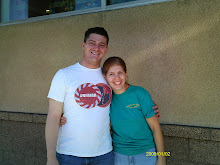The state of total exhaustion that the rescue left him in became fodder for the next leg of Mortenson's life journey. As he mistakenly stumbled into the remote Pakistani village of Korphe, the country's last human outpost before unyielding peaks swallowed hospitable landscape, he was taken in by its leader and given the rest he so badly needed. "[That] evening, he went to bed by a yak dung fire a mountaineer who'd lost his way," relays his biographer David Oliver Relin, in the book he co-authored with Mortenson called Three Cups of Tea. "[The next] morning," Relin continues, "by the time he'd shared a pot of butter tea with his hosts and laced up his boots, he'd become a humanitarian who'd found a meaningful path to follow for the rest of his life" (2).
A meaningful path to follow for the rest of his life. Among the many nearly-unbelievable details from Mortenson's biography, this statement to me is the most gripping and amazing. It resonates so intensely with me because deep inside, this is what I want most. The young mountaineer was at a crossroads in his life as he descended the Himalaya's Baltoro glacier back towards humanity. I can identify with the youthful longing for adventure he must have felt at that moment and the uncertainty of what his next step should be. He needed a calling, something far greater than himself that he could devote himself to with reckless abandon, just as he had devoted himself to climbing. And so do I.
Nothing meaningful is ever easily accomplished, however. Mortenson's task proved to be physically, socially, and spiritually demanding, one which required painful endurance and rigid self-discipline to fulfill. Having witnessed children's classes being held without a proper schoolhouse nor a teacher, Mortenson purposed within himself to provide a school for the Korphe village through whatever means it would take. Three years and several nearly-impassable roadblocks later, he returned to carry out his word. That one promise birthed in him a passion not only for the region, but for education for the poorest of the poor, that launched his advocacy for Pakistan.
Mortenson's purpose in Pakistan is to build unbiased schools, especially for impoverished girls, in the country's most needy areas. "It is my vision," he writes in his acknowledgements, "that we will dedicate the next decade to achieving universal literacy and education for all children" (333). Along with providing education, he also seeks to relieve humanitarian needs for displaced internal refugees. One such refugee, left homeless after the 1999 Kargil Conflict between Pakistan and India, petitioned Mortenson as they crouched together underneath a blue tarp that shaded the hot sand and served as a makeshift shelter outside Skardu, the regional capital of Baltistan. "We need food, medicine, and education for our children," the refugee pleaded. "This is our home now. I'm ashamed to ask for so much, but no one else has come" (220).
No one else has come. It's a jarring accusation for those of us sitting in our comfortably coiffed homes half a world away. No one else was so willing to risk his comfort in order to reach out a hand of healing? No one else cares enough to stoop in the sand and listen? It reminds me of Jesus' parable of the good Samaritan: One man, caught by thieves on a fairly busy road and left for dead, was stepped over and around by all of the elite religious leaders of his day because he was considered unclean and unworthy; to touch him in any way would prove uncomfortable. Yet a Samaritan stopped his journeys and knelt down in the dust, soiling his own clothes to care for this strange man, because he had compassion. Scripture says he "showed mercy" to the wounded man and Jesus Himself asks us to "go and do likewise" (Lk 10:27). Mortenson, it seems, has taken Jesus up on His offer.
The reason I can't shake Mortenson's story is because it stirs me to respond. Whether this man is a believer in Jesus or not, his actions are biblically sound. To His servants who cared for the needy and most forgotten, Jesus asserts in Matthew 25: "Inasmuch as you did it to the least of these, My brothers, you did it to Me" (25:40). What Jesus applauds, Morteson is doing. What stops me from doing the same? "I am challenged this day to live my life worthy of the call of Christ," I posted to my Skype account just after finishing the book. Indeed, it arouses me in very meaningful ways--ways that may just find me crouched in a hot, dusty corner of Earth pouring out a cup of cold water to a man who "can offer [me] nothing... not even tea" (Mortenson 220).

No comments:
Post a Comment